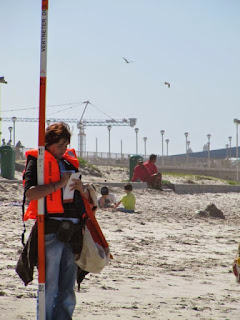Re-veiwing peace
“For freedom is honed in the struggle with destiny. The freedom that develops in our confronting our destiny produces the richness, the endless variety, the capacity to endure, the ecstasy, the imagination, and other capacities that characterize the world and ourselves as conscious creatures, free but destined, moving in it.”
(Rollo May, 1981, p96)
(I Found this post while searching through some old documents. It dates back to December 2013, and while a lot has changed in South Africa at the moment, particularly with the Rhodes Must Fall movement and it's emphasis on reflexive learning, it still feels relevant when discussing how to work towards 'peace').
Nelson Mandela’s memorial service took place today, and amongst many of the comments which I read one in particular pointed out that freedom was (and is) a process rather than an end result or a destination. Perhaps, as Rollo May argued, once we give up fighting for freedom, we have lost our place on the path we use to search for it. Although we live in a country that has political democracy, we live with the terrible impacts of human rights abuse still visible in the form of poverty, lack of adequate sanitation, the struggles for adequate education, high rates of infant mortality, illness and high levels of violence.
South Africa had the vision of a Rainbow Nation, the Truth and Reconciliation Commission (TRC) and a story of forgiveness, and yet there is quite clearly work to be done. I would like to argue that peace is not sentiment. More importantly, working towards peace is not about dominant groups or belief systems retaining power while ‘other’ people peacefully accept this. Peace, I would argue, is an act of rebellion, a refusal to fit in with dominant norms, if these norms marginalize or oppress populations or groups of people. Peace is about exploring history, evaluating who has been harmed, and using our freedom to work towards new possibilities while refusing to stand by belief systems or value systems which harm others.
I would like to argue that the very beginning of human rights work means looking beyond ourselves, our ideas and our perceptions of the world, and into the wider collective of the human family, seeking out those beliefs or spaces which allow abuse or human rights violations to thrive, and searching for new options. In working towards freedom and a society that is safe from abuse, we, as a society have to continually question our perceptions of the world and the blind - spots we have acquired over time. We have to work, continually, to challenge set theoretical notions that we believe make the world safe and predictable, exploring our freedom to re-view the world continually, casting ourselves into the chaos of not knowing so that we can embrace the dynamic flow of ideas or shifting realities with courage and a willingness to learn.
To do this, we have to recognize the boundaries of our existing worlds, and where the limits are. We need to acknowledge the reality of the present, and use the limits people face as a means to working towards deeper human rights. Exploring the limits within the social world is important because it exposes privilege. As Goffman argues, we sometimes only become aware of the rules or boundaries, which limit us when we come up against them. When we are aware of how our own behaviours construct and re-construct reality over and over again, we are more able to see the limits we place on ourselves and on ‘other’ people, and how we interpret the world or ourselves because of this.
Perhaps one of the most moving examples towards a protection of human rights came from World War II, where citizens of Denmark all wore golden stars after Germany issued instruction that all Jewish people wear one. With the declaration of a human family living in Denmark rather than separate groups of ‘us’ and ‘them’, Jewish people remained safe. This action was an act of defiance, an awareness of the power which comes with unity, and showed an understanding of the dangers of social categories and divisions. It was the awareness of the social norms used to discriminate, and the refusal to comply, which brought about the compassionate rebellion which saved lives.
Labels: agency, freedom, freedom and destiny, Nicci Attfield, peace, reflexivity, Rollo May, Social Justice

